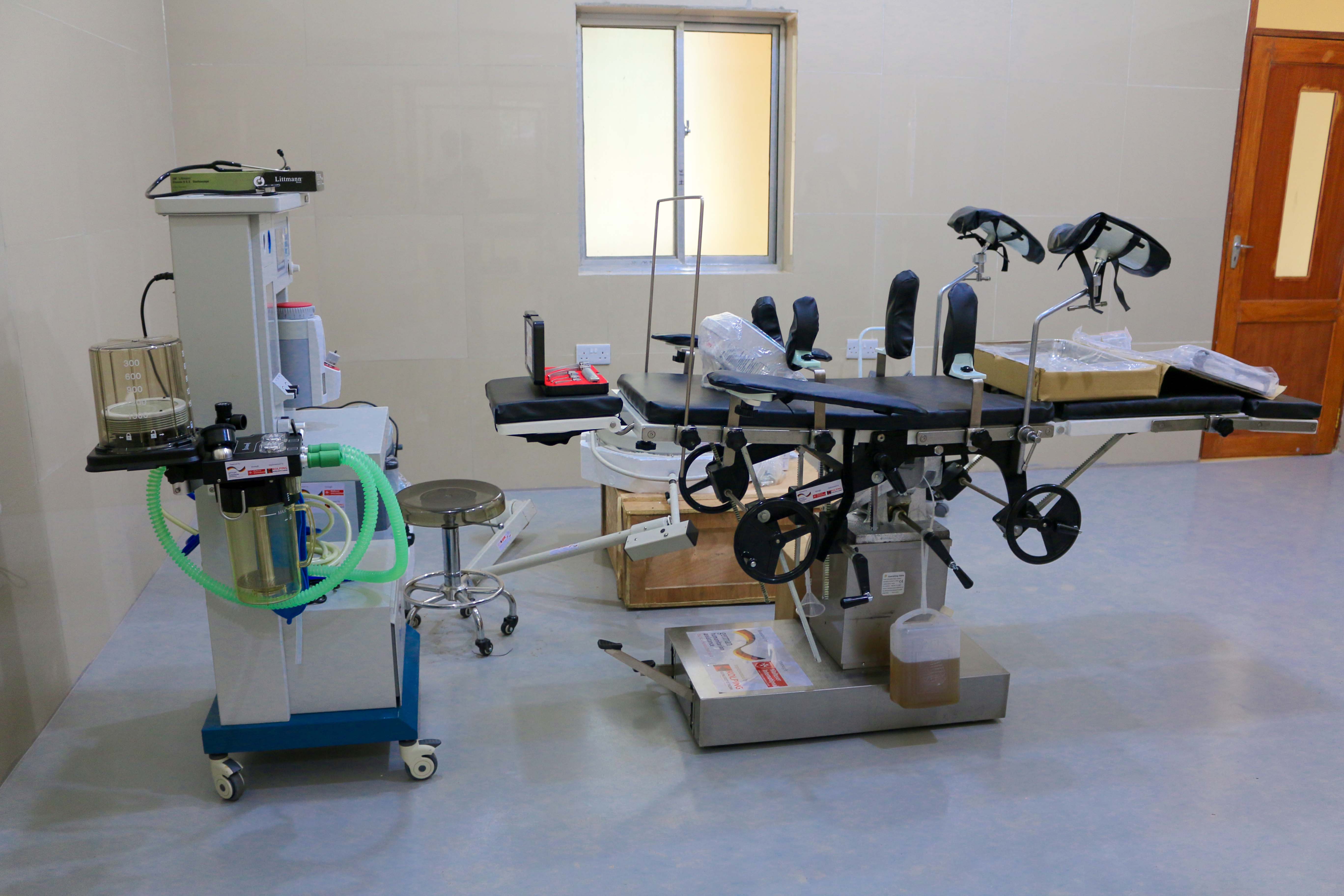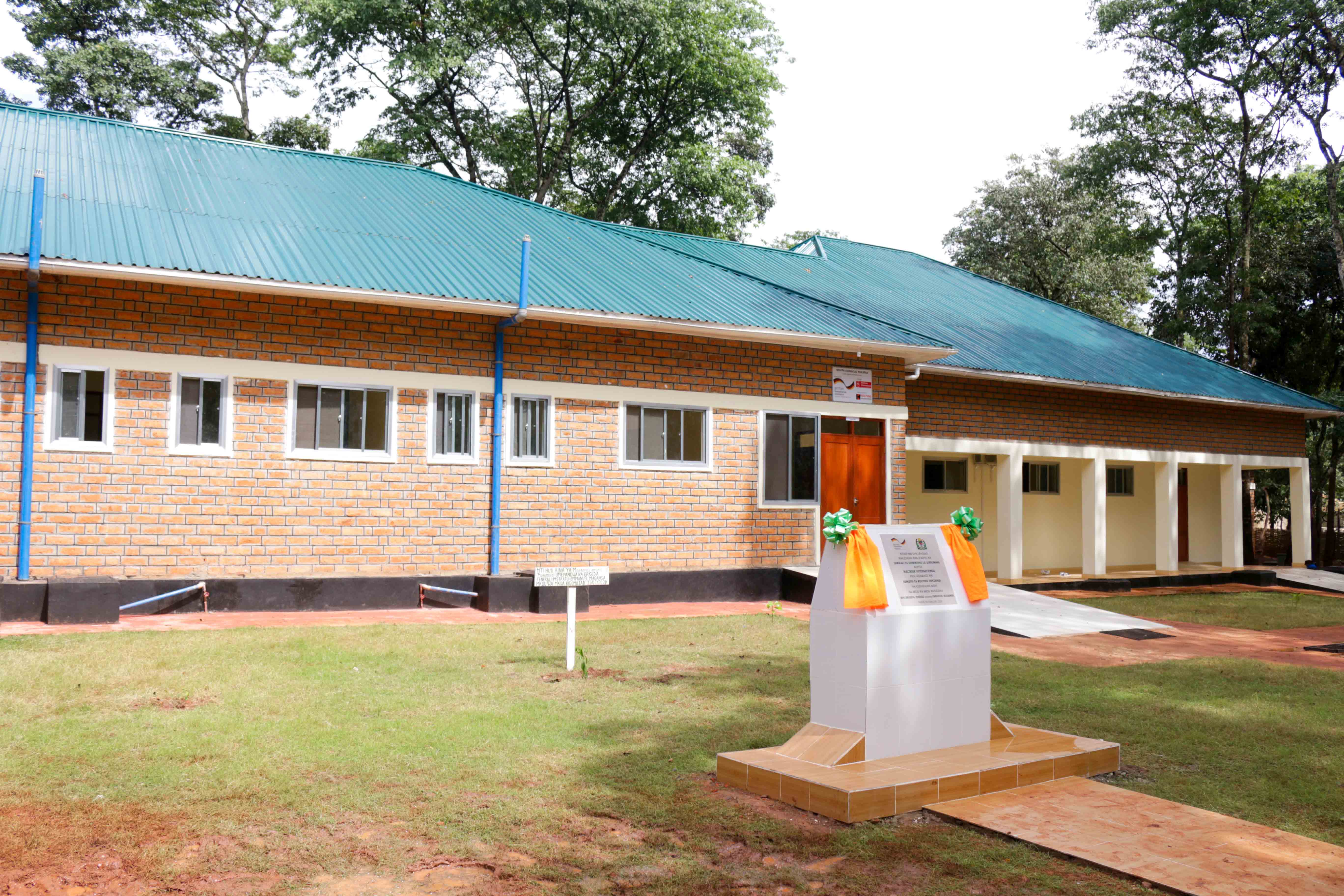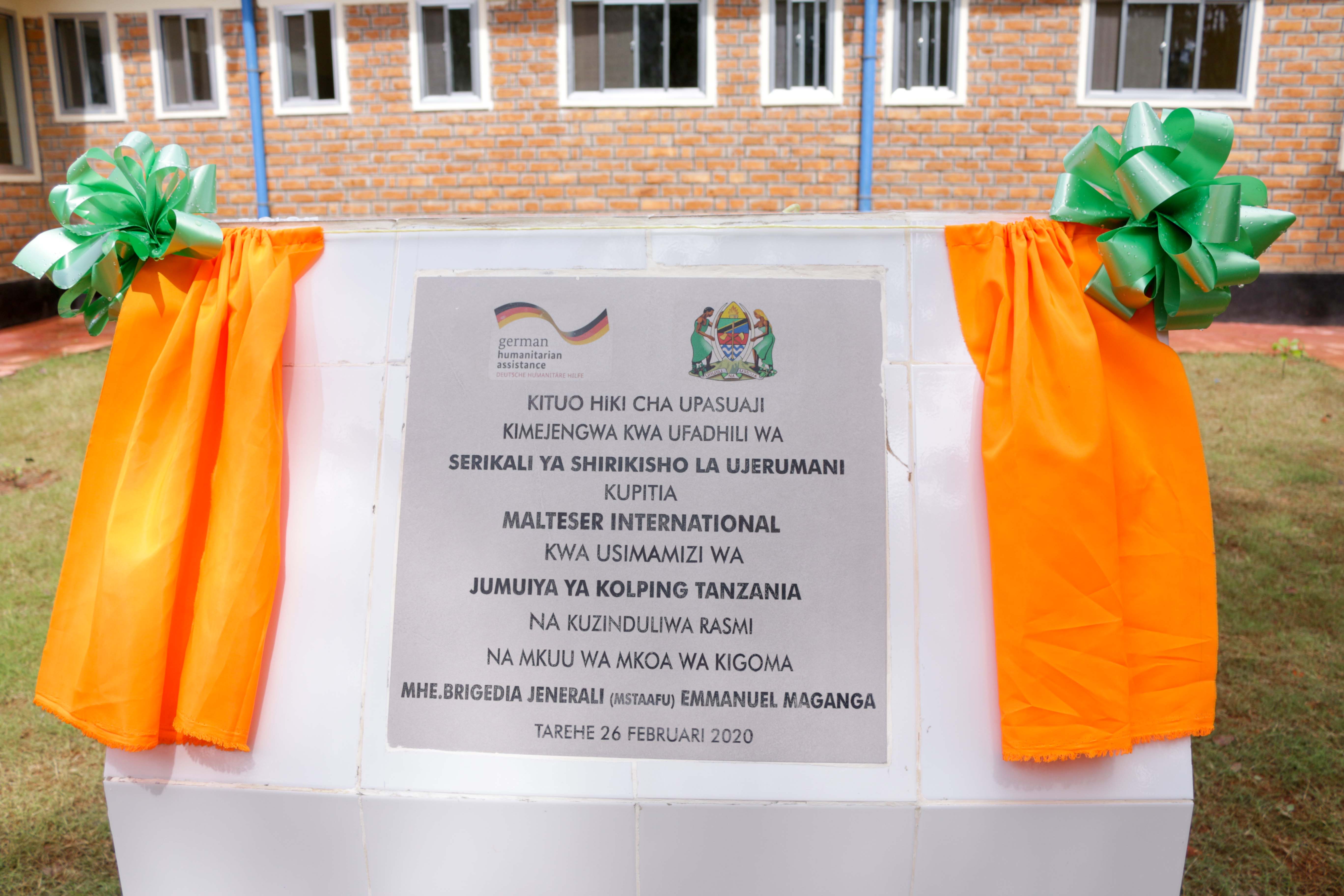-
-
Call us for more details!
-
KST Address
P.O. Box 1236, Bukoba - Tz
ACUTE SURGICAL AND OBSTETRIC CARE PROJECT AT MTENDELI AND NDUTA REFUGEE CAMPS- (2016 to 2020)
ACUTE SURGICAL AND OBSTETRIC CARE PROJECT AT MTENDELI AND NDUTA REFUGEE CAMPS- (2016 to 2020)


Reducing Maternal Mortality by
Construction of two Centers for Acute Surgical and Obstetric Care for Mtendeli
and Nduta Refugee Camps and Host Community in Kakonko and Kibondo Districts,
Kigoma Region, Tanzania (2016-2020):
Brief Description of the Undertaking Objective:
Reduction of maternal mortality among Burundian refugees in Mtendeli and Nduta Refugee Camps and among the hosting community in Kakonko and Kibondo Districts, Kigoma Region, Tanzania. (SDG 3.1.: reduce the global maternal mortality ratio to less than 70 per 100,000 live births. Actual ratio in Burundi 740/100.000, in Tanzania 410/100.000)
Specific Objective:
Improving access to safe surgical-obstetrical care, particularly caesarean sections for Burundian refugees in Mtendeli and Nduta Refugee Camps (Tanzania) and the hosting community by construction of two centers for acute surgical and obstetric care for Burundian refugees and the hosting community in Kakonko and Kibondo districts, Tanzania.
Genesis of the Initiative
The outbreak of civil conflict, destabilization and deterioration of the economic situation in Burundi by April 2015 had led to refugee outflows to neighboring countries. By the end of October 2016, some 322,300 Burundians had fled the country, primarily to the Democratic Republic of the Congo (DRC), Tanzania, Uganda and Rwanda and the flight trend continued. Political instability had plunged Burundi into a multitude of challenges such as increasing insecurity, the decline of external financial support, and a dwindling economy, which were leading the country to a rapidly deteriorating humanitarian situation.
The Mtendeli Refugee Camp (Kakonko district) was opened in 2015 in an effort to alleviate the overcrowding in Nyarugusu (Kasulu district) and Nduta (Kibondo district) Refugee Camps. As of 27th February 2016, the UNHCR data estimated there was a total population of 50,789 refugees in Mtendeli refugee camp, all of them from Burundi.
Refugees at the Nduta and Mtendeli camps and the neighboring local communities were dependent on the camps’ Main Dispensary for all of their health care needs. As the refugee population continued to rise at both camps, the need of establishing Health Posts inside the camps to complement the Main Dispensary at each camp became eminent. As per UNHCR setup, every 10,000 refugees require services of a health post, besides the main dispensary.
The initiative regarding the two health projects at Mtendeli and Nduta Refugee Camps, Kakonko and Kibondo districts respectively, was a result of joint endeavors between Malteser International (MI) a German International Relief Agency and the Kolping Society of Tanzania. After the initial assessment of the refugee situation in Nduta and Mtendeli refugee camps conducted jointly by Malteser, Kolping, Camp management and the UNHCR, it was observed that there was an urgent need to improve the access to safe acute surgical and obstetrical care, particularly cesarean section for Burundian refugees at both camps as well as the host population.
Kibondo district government hospital, the nearest hospital with the possibility to conduct surgical-obstetric procedures, was at a distance of not less than 25km from each of the two refugee camps. This is too far to transfer emergencies by the rough and unreliable roads. Moreover, due to the large number of refugees in Kigoma region in addition to the Tanzanian patients, the hospital is completely overloaded. Even in emergencies long waiting periods are expected. Therefore, an adequate access was currently not guaranteed and should, therefore, be enabled through the project.
It was envisioned that an improved access and quality of the offered obstetrical services including acute surgical and obstetric care would have a direct impact on the intended reduction of the maternal mortality rate. The Germany Foreign Ministry was approached and accepted to provide the funding for the two projects, in the context of improving access to safe obstetric emergencies for Burundian refugees in the Mtendeli and Nduta refugee camps as well as for the host population in the area. All initiatives were geared to supporting the efforts of the government of Tanzania to cope with the refugee crisis.
Achievements
Mtendeli Refugee Camp - Kigoma (2016-2017)
From April 2016 to April 2017, a centre for obstetric emergencies was constructed by the project at Mtendeli Main Dispensary operated by the Tanzanian Red Cross Society. The new centre has two surgical wards, and was further equipped with a solar photovoltaic back up system, sluice room, sterilization room, ultrasound room, hospital equipment and supplies, and a rainwater harvesting system with capacity of 20,000 litres.
Nduta Refugee Camp - Kigoma (2018-2020)
An ultra-modern obstetric surgical center that meets the Ministry of Health (MOH) standards was constructed with KST supervision and Malteser guidance at Nduta Refugee camp, with the following main features: 2 surgical rooms for acute surgical and obstetric care including other surgical procedures; a minor theatre; a consultation room; Ultrasound room; Pharmacy Unit; Recovery Room; 2 Post-operative wards for female and male; Isolation facility; Hygienist unit; Sluice unit; Sterilization Room; Laundry unit; Clean supplies storage; and reconstruction of the Camp’s main Hospital Structure housing a post caesarean ward and post-delivery ward, as well as a nursing station, installation of a solar photovoltaic back up and rainwater harvesting system.
Other achievements include: provision of obstetric surgical equipment and supplies (medicine) for Kakonko government district hospital handed over by Msgr. David Kamugisha to the Kakonko District Commissioner. Also the provision of essential surgical medication and supplies for Nduta and Mtendeli with focus on obstetric emergencies. The Regional Commissioner for Kigoma Region, Brigadier General (Rtd) Emmanuel Maganga represented the government at the handover ceremony of the Nduta surgical centre. The Right Rev. Bishop Joseph Roman Mlola, Bishop of Kigoma Diocese presided over the official handover to the government of Tanzania of the surgical centre project at Nduta Refugee Camp on behalf of Malteser International, the Germany Foreign Ministry and the Kolping Society of Tanzania.
Brief Description of the Undertaking Objective:
Reduction of maternal mortality among Burundian refugees in Mtendeli and Nduta Refugee Camps and among the hosting community in Kakonko and Kibondo Districts, Kigoma Region, Tanzania. (SDG 3.1.: reduce the global maternal mortality ratio to less than 70 per 100,000 live births. Actual ratio in Burundi 740/100.000, in Tanzania 410/100.000)
Specific Objective:
Improving access to safe surgical-obstetrical care, particularly caesarean sections for Burundian refugees in Mtendeli and Nduta Refugee Camps (Tanzania) and the hosting community by construction of two centers for acute surgical and obstetric care for Burundian refugees and the hosting community in Kakonko and Kibondo districts, Tanzania.
Genesis of the Initiative
The outbreak of civil conflict, destabilization and deterioration of the economic situation in Burundi by April 2015 had led to refugee outflows to neighboring countries. By the end of October 2016, some 322,300 Burundians had fled the country, primarily to the Democratic Republic of the Congo (DRC), Tanzania, Uganda and Rwanda and the flight trend continued. Political instability had plunged Burundi into a multitude of challenges such as increasing insecurity, the decline of external financial support, and a dwindling economy, which were leading the country to a rapidly deteriorating humanitarian situation.
The Mtendeli Refugee Camp (Kakonko district) was opened in 2015 in an effort to alleviate the overcrowding in Nyarugusu (Kasulu district) and Nduta (Kibondo district) Refugee Camps. As of 27th February 2016, the UNHCR data estimated there was a total population of 50,789 refugees in Mtendeli refugee camp, all of them from Burundi.
Refugees at the Nduta and Mtendeli camps and the neighboring local communities were dependent on the camps’ Main Dispensary for all of their health care needs. As the refugee population continued to rise at both camps, the need of establishing Health Posts inside the camps to complement the Main Dispensary at each camp became eminent. As per UNHCR setup, every 10,000 refugees require services of a health post, besides the main dispensary.
The initiative regarding the two health projects at Mtendeli and Nduta Refugee Camps, Kakonko and Kibondo districts respectively, was a result of joint endeavors between Malteser International (MI) a German International Relief Agency and the Kolping Society of Tanzania. After the initial assessment of the refugee situation in Nduta and Mtendeli refugee camps conducted jointly by Malteser, Kolping, Camp management and the UNHCR, it was observed that there was an urgent need to improve the access to safe acute surgical and obstetrical care, particularly cesarean section for Burundian refugees at both camps as well as the host population.
Kibondo district government hospital, the nearest hospital with the possibility to conduct surgical-obstetric procedures, was at a distance of not less than 25km from each of the two refugee camps. This is too far to transfer emergencies by the rough and unreliable roads. Moreover, due to the large number of refugees in Kigoma region in addition to the Tanzanian patients, the hospital is completely overloaded. Even in emergencies long waiting periods are expected. Therefore, an adequate access was currently not guaranteed and should, therefore, be enabled through the project.
It was envisioned that an improved access and quality of the offered obstetrical services including acute surgical and obstetric care would have a direct impact on the intended reduction of the maternal mortality rate. The Germany Foreign Ministry was approached and accepted to provide the funding for the two projects, in the context of improving access to safe obstetric emergencies for Burundian refugees in the Mtendeli and Nduta refugee camps as well as for the host population in the area. All initiatives were geared to supporting the efforts of the government of Tanzania to cope with the refugee crisis.
Achievements
Mtendeli Refugee Camp - Kigoma (2016-2017)
From April 2016 to April 2017, a centre for obstetric emergencies was constructed by the project at Mtendeli Main Dispensary operated by the Tanzanian Red Cross Society. The new centre has two surgical wards, and was further equipped with a solar photovoltaic back up system, sluice room, sterilization room, ultrasound room, hospital equipment and supplies, and a rainwater harvesting system with capacity of 20,000 litres.
Nduta Refugee Camp - Kigoma (2018-2020)
An ultra-modern obstetric surgical center that meets the Ministry of Health (MOH) standards was constructed with KST supervision and Malteser guidance at Nduta Refugee camp, with the following main features: 2 surgical rooms for acute surgical and obstetric care including other surgical procedures; a minor theatre; a consultation room; Ultrasound room; Pharmacy Unit; Recovery Room; 2 Post-operative wards for female and male; Isolation facility; Hygienist unit; Sluice unit; Sterilization Room; Laundry unit; Clean supplies storage; and reconstruction of the Camp’s main Hospital Structure housing a post caesarean ward and post-delivery ward, as well as a nursing station, installation of a solar photovoltaic back up and rainwater harvesting system.
Other achievements include: provision of obstetric surgical equipment and supplies (medicine) for Kakonko government district hospital handed over by Msgr. David Kamugisha to the Kakonko District Commissioner. Also the provision of essential surgical medication and supplies for Nduta and Mtendeli with focus on obstetric emergencies. The Regional Commissioner for Kigoma Region, Brigadier General (Rtd) Emmanuel Maganga represented the government at the handover ceremony of the Nduta surgical centre. The Right Rev. Bishop Joseph Roman Mlola, Bishop of Kigoma Diocese presided over the official handover to the government of Tanzania of the surgical centre project at Nduta Refugee Camp on behalf of Malteser International, the Germany Foreign Ministry and the Kolping Society of Tanzania.










